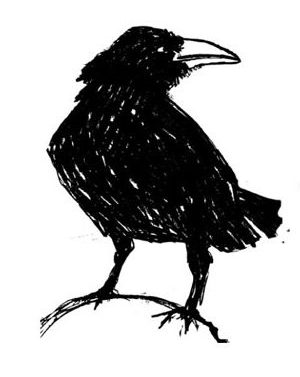Observation – Of all the skills developed by an artist, observation is one of the foundations. The ability to critically examine the world around her, starts with visual (and often aural) observation. Developing the ability and habit of seeing what is actually in front of her instead of assuming something is a certain way, is the starting point for both simple illustration, copying what already exists, and expression, re-presenting what you observe through your own experience or point of view. Many inexperienced artists attempt to express something without having the foundation of having observed first. Their work looks badly drawn because it was poorly observed.
If asked which way the branches of a certain kind of tree grows, does she assume they point downward or upward? Or does one observe the tree for their answer? Eventually over a lifetime, the artist will develop an internal library of images and learned observation. In other words, one develops the skills to draw a dog or certain flower etc from memory. That memory should be based on past observations.
Observation is the practise of looking, listening, feeling or being responsive to the actual qualities of an object. “Is the grass really green, or does it have other colours of gold, or lime or maroon, or blue shadows among the greens?”
Observation is also the practise of focus. An artist can make sense out of what appears to be visually chaotic, by focusing on one part at a time.
For example in observing a crowd, one can pick a small part and examine that.
“There are three people at the left edge of the crowd. One is tall and holding the hands of two smaller people. They are wearing dark drab coloured clothes. They are walking quickly away. Next to them is a person standing on their toes to see over the heads of the crowd. This person is wearing a bright jacket that has holes in the elbow.”
Observing what is in front of you, should become a lifelong habit that will transfer into every other part of your life. As an accountant, you would observe patterns of numbers others would not notice. As a doctor, you might notice important symptoms in a patient that are not in the text book. As an artist, you will always be seeing the world from an informed point of view, regardless of what profession you might choose to make a living.

This is pretty neat Linda